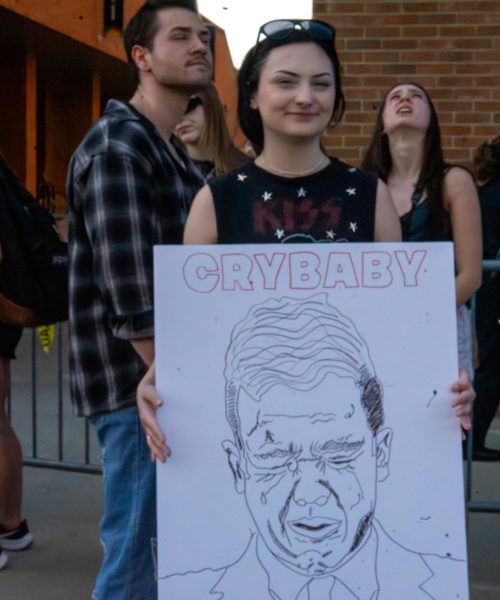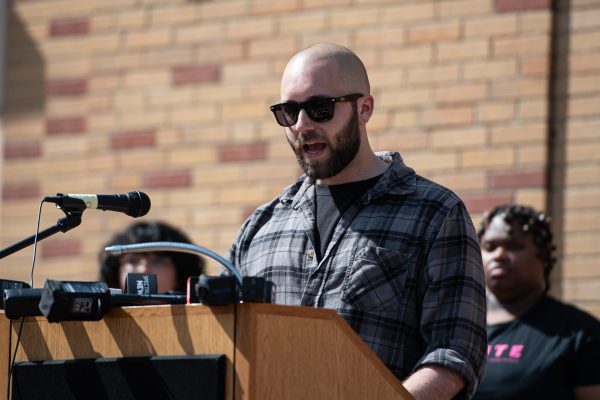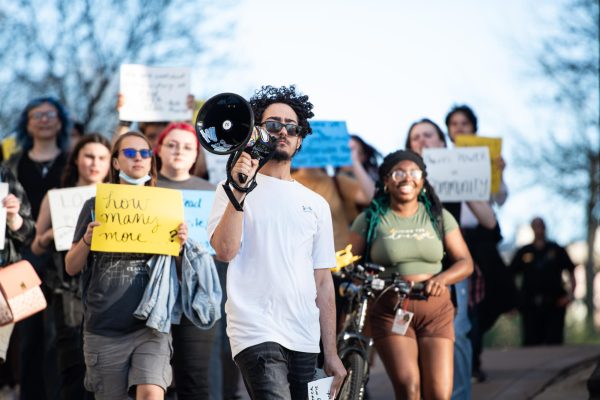A long way from Yugoslavia to KSU
October 9, 2006
At the age of 11, Veronika Dolar had to cross a back road in the forest into her home country which was undergoing a 10-day civil war.
Dolar is now 26 years old and an economics instructor at Kent State. She was born in Slovenj Gradec, Slovenia and grew up in the city of Velenje.
In 1991, Yugoslavia began to break up, Dolar said. Slovenia, a country the size of New Jersey, was a part of Yugoslavia.
“You really do live in some sort of fear,” she said of the 10-day civil war that took place.
“Slovenians were very na’ve,” she said. “It didn’t seem so problematic (to them).”
Dolar said her city has an interesting story.
“This city didn’t really exist before World War II,” she said.
Before, it was called Titovovelenj in honor of the Yugoslavian leader Josip Broz Tito, Dolar said.
People in her city normally hung clothes out on a line off their balconies to dry the laundry in the wind, but when a delegation or political figures came to the town, people would pull their underwear and such inside to make the town look respectable, she said.
Many people respected Tito and wanted to honor him in some way. The city had a huge demand for schools, but people also wanted to put up a statue of Tito. The town took a vote, she said, and the statue was their choice.
“Slovenians usually have a pretty high opinion of Tito, (and) I never really lived under his reign,” she said.
Dolar said her city still has the statue, which is unique because in other countries when a ruler is no longer in power their symbols are ripped down.
When Slovenia separated from Yugoslavia and some people wanted to remove the statue, others said “‘Are you crazy? Do you know how much we paid for this statue?'” Dolar said.
As a young teen, Dolar was innovative in the activities she undertook and did so with vigor.
“When I was 14, I opened my own library,” she said. In the suburban district where she lived, there was a building that used to be a library and she wanted to reopen it. Dolar said she had to get the key from the local district leader.
“It took me a year to convince him,” she said.
When the library opened, they held big ceremony and people volunteered to work, she said. “It expanded and worked well for two years.”
With her acceptance into an international high school, Dolar’s work with the library ended. At the age of 16, Dolar attended the United World College of the Adriatic in Italy, where she received an International Baccalaureate degree, she said.
“For me to leave the country is a big event,” Dolar said. “Slovenians are very well known for staying where they are born.”
Her father only moved 500 meters to a new home and her mother two kilometers, she said, “basically from one house to another.” Slovenians are a sentimental people and put a lot of work into their homes.
Dolar received her undergraduate degrees in political science and economics at the University of Western Ontario in three years.
“As a child going through all these things in Yugoslavia, I was interested in why wars happened,” Dolar said about studying economics.
Dolar then worked at the Bank of Canada as a research assistant to economists and then to the University of Minnesota to work on her doctorate, she said, which she is still working on now while she teaches at Kent State.
Contact academic affairs reporter Heather Scarlett at [email protected].























